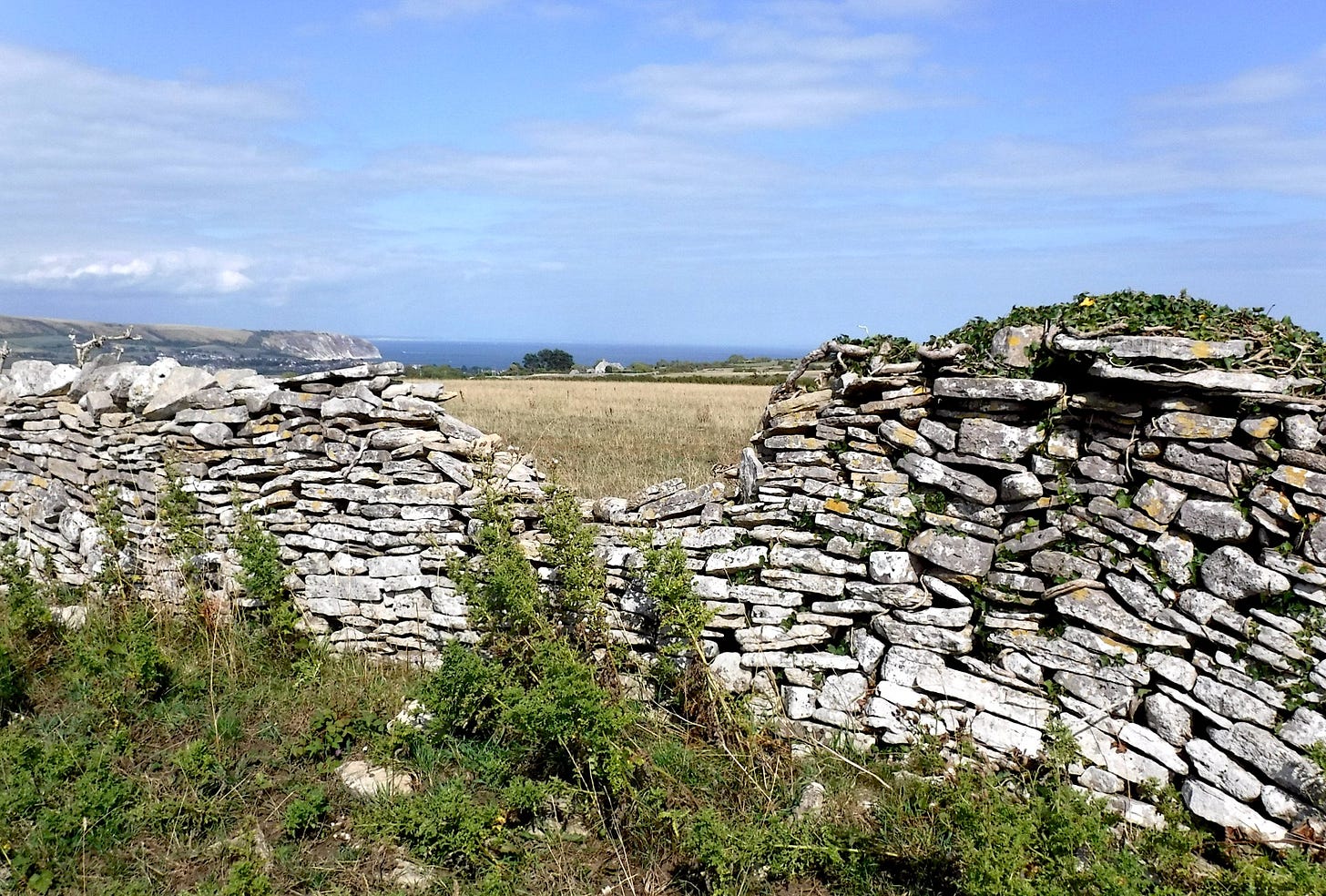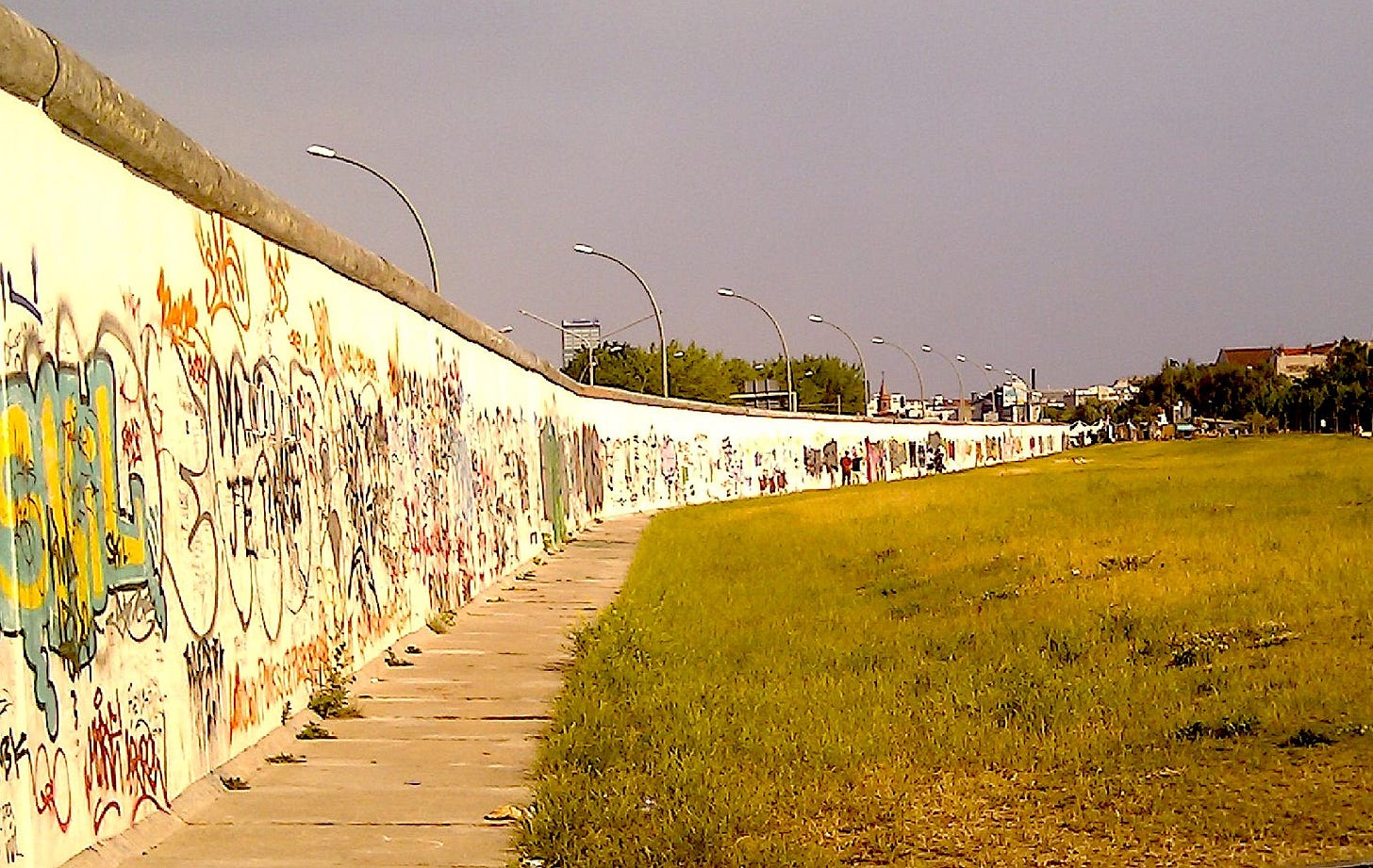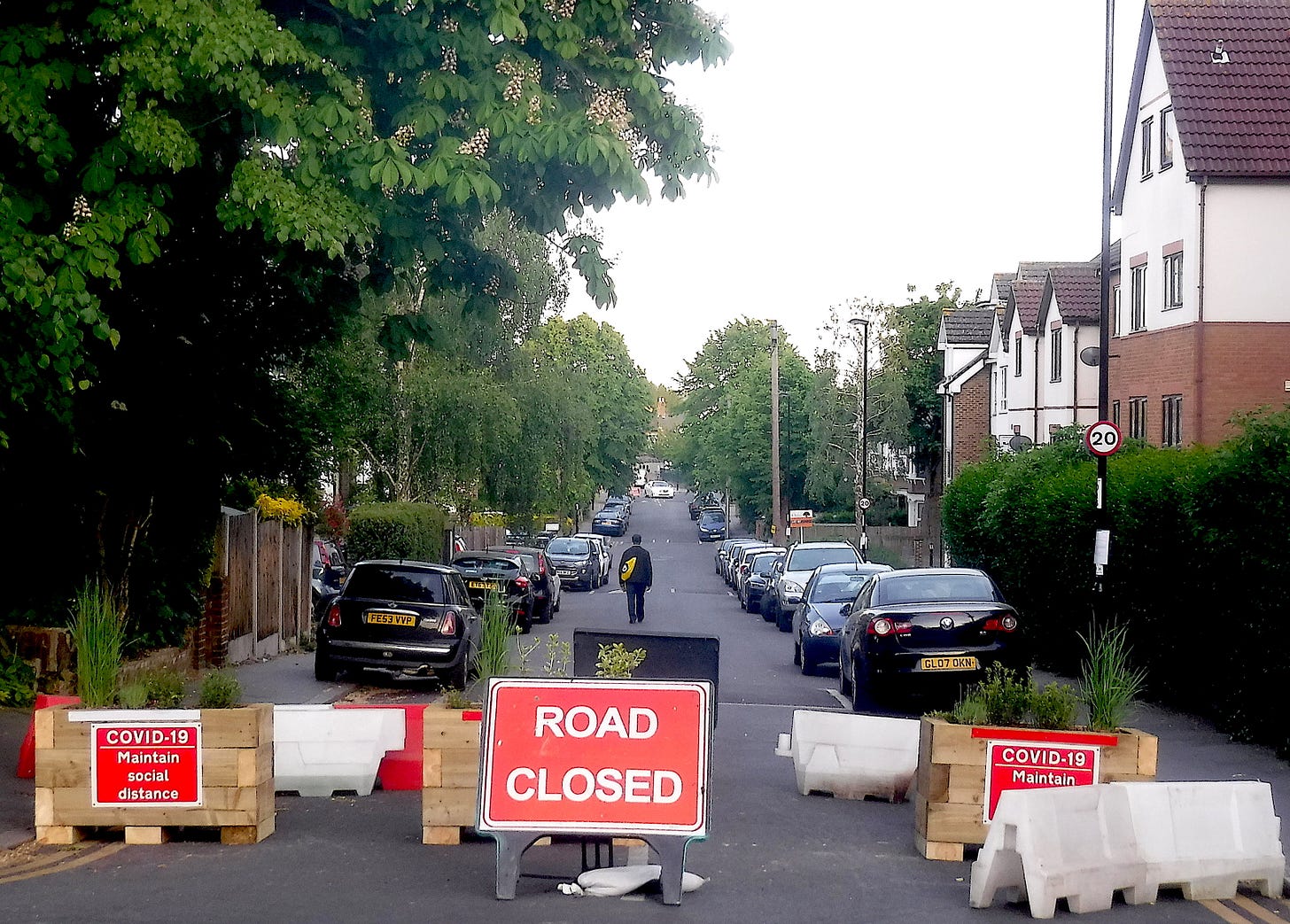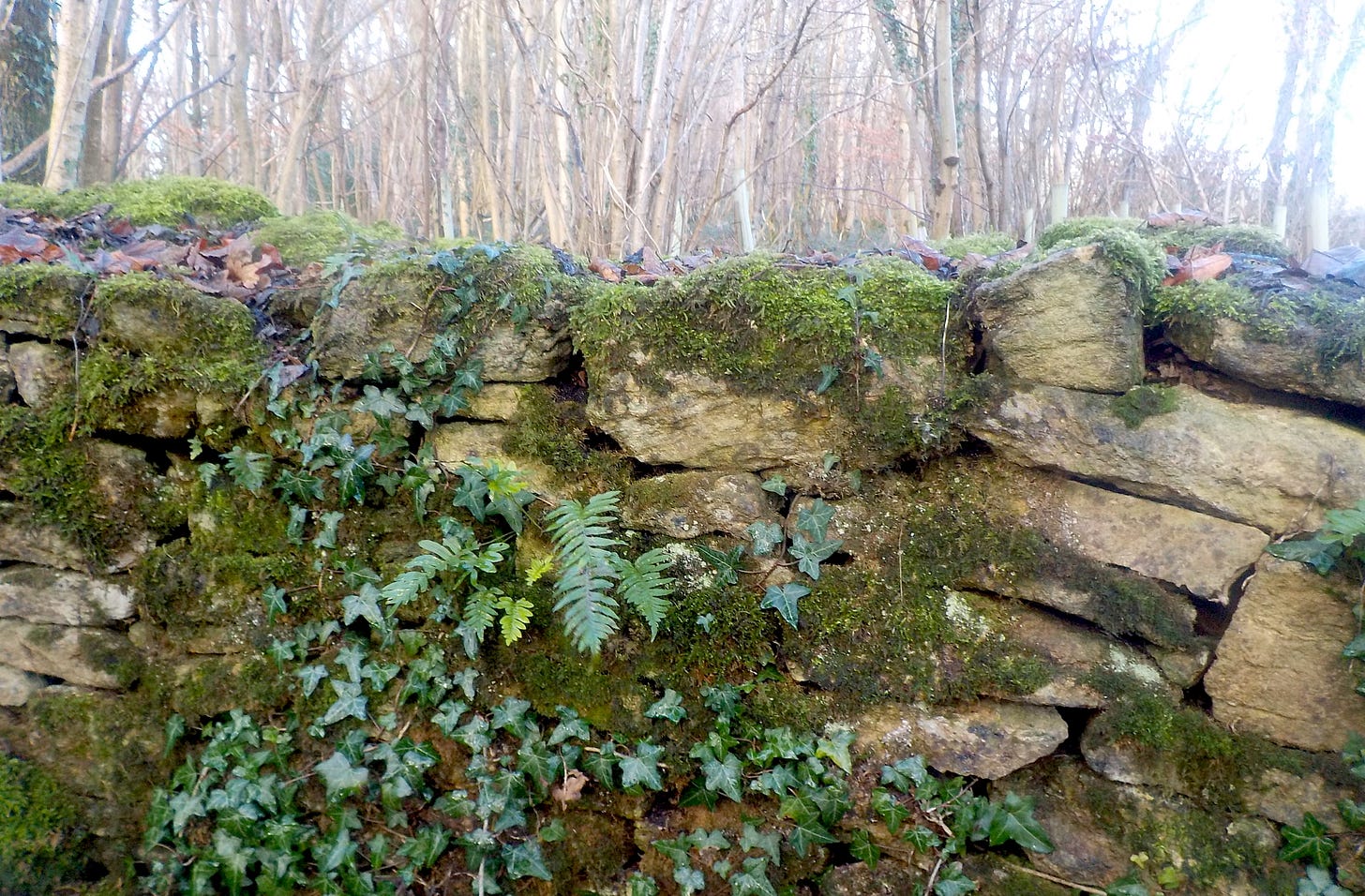It’s happened again. My mind has been assailed by a familiar phrase, carried into my consciousness as if on a breeze. It bears a fresh, new resonance: it’s almost as if Culture is sending me a message of comfort and wisdom in difficult times.
The words come, this time, from a poem by Robert Frost: ‘Something there is that doesn’t love a wall’. The eminently sane voice of ‘Mending Wall’ gently pursues a fundamental question: what is it about us humans that makes us so attached to barriers? What underlies our need to carve up the space in which we live and restrict each other’s movements? What is the point of a wall?
The speaker in the poem indulges his neighbour’s obsession with maintaining the wall between their two properties despite the fact that, in practical terms, it’s unnecessary:
He is all pine and I am apple orchard.
My apple trees will never get across
And eat the cones under his pines, I tell him.
The neighbour is unable to explain his reason for needing the wall, simply replying: ‘good fences make good neighbours’. We understand that the wall has an important symbolic significance for him; he needs the boundary to be visible and tangible. The speaker, on the other hand, retains a detachment which allows him to recognise that all this fuss about the wall is ‘just another kind of out-door game/One on a side.’ For him, there needs to be a good reason for a barrier because walls have consequences. His attitude contrasts sharply with his neighbour’s unquestioning attachment to the wall, and highlights a certain mindlessness:
Before I built a wall I’d ask to know
What I was walling in or walling out,
And to whom I was like to give offense.
I grew up understanding that political (as opposed to garden or agricultural) walls were A Bad Thing, a sign of a divided society and oppressive government. I’d gone through Checkpoint Charlie in what turned out to be the last year of the Berlin Wall, entering a country my companion and I found so eerily bleak that we fled to Czechoslovakia almost immediately. The next year, I watched crowds swarming through the checkpoints on TV and, soon after that, acquired a fashionable souvenir of liberation, a supposed piece of the wall itself.
The fall of the Berlin Wall was followed, a couple of years later, by the dismantling of a different system of segregation and confinement in South Africa.
We were making progress, us modern people!
Not for long. Within a decade, that democratic nation of the Middle East was investing large quantities of money and labour into constructing a barrier between Israel and the Palestinian Territories of the West Bank. My Arabist sympathies had led me to take a job as Middle East communications manager for a charity, and I watched the creation of this new wall with dismay and bafflement. Why anyone would see the erection of a physical barrier as a solution to ‘the Israeli/Palestinian problem’?
But the barrier was going up, slicing its way through the West Bank, amplifying the confinement of the Palestinians to their camps and villages. The politics of the new wall were so intensely charged that there wasn’t even agreement about what it should be called: those who supported the Israeli government’s actions tended to call it the ‘security barrier’ to emphasise its necessity in the face of Palestinian terrorism, while those who saw it as a divisive mistake referred to it as the ‘separation barrier’. The linguistic-politics were heightened by the different forms the barrier took; it some places it was a wall, in others a fence.
You could say I was, at that point of my career, a kind of ‘anti-barrier professional’. Don’t snigger - given the human creativity applied to the erection of barriers and the diversity of the forms they take, this line of work has its own sophistication. In Gaza, I understood that the absence of a big, obvious wall (at that time: the ‘security’ is ‘better’ now) was deceptive: walk out into No Man’s Land and you could get pre-emptively shot by the Israeli military. Meanwhile in the West Bank, roadblocks would suddenly spring up at the entrances of camps after an Israeli JCB had come along and churned up the track, creating a mound of soil and rock that vehicles couldn’t pass.
These roadblocks never stopped Palestinian residents from going about their business, to their jobs in Israel, to sell produce in markets or to study at school or college. Whenever a new one appeared, a recognised protocol kicked in. Shared taxis would wait either side of the barrier and a flood of people, from schoolchildren to elderly women carrying bags of herbs, would exit a taxi, clamber over rock and soil and enter another. Stopping the movement of people was not the intention: the spontaneous roadblocks were a reminder that the Authorities were in charge and possessed the power to disrupt people’s lives at any time.
Surely this kind of barrier-loving behaviour only comes from petty-minded authority and overbearing government?
No. Some years later, having given up the anti-barrier work, I attended a screening of a film about the plight of the people of Bethlehem. Keen to support the event, I’d decided not to request a press pass and buy a ticket. But arriving at the venue, I found the arrangements separated the audience into two, roughly equal, groups, with VIPs entering by one entrance and the ticket-holding public by another. Once inside, the two groups were seated in separate parts of the auditorium and I was ticked off for accompanying my VIP friend.
At the drinks reception after the film, the segregation was even more marked: VIPs mingled in one room while the rest of us had to stay in an outer chamber. With event organisers operating a de facto checkpoint, my celebrity friend decided to boycott the VIP room and stood, shoulder-to-shoulder, with me at the entrance.
It struck me forcibly how the event replicated the behaviour it sought to criticise. Same pattern, different form: its dynamics and mechanisms betrayed a deep need to segregate and exclude, to say ‘you cannot enter’ and ‘you must stay here’ and, crucially – ‘we are the ones who decide’.
Frost, seeing this tendency in his neighbour, characterises it as a dark, regressive force:
… I see him there
Bringing a stone grasped firmly by the top
In each hand, like an old-stone savage armed.
He moves in darkness as it seems to me.
The Britain of 2023 has suddenly become mustard-keen on new barriers. In Bath, the council has been erecting a ‘ring of steel’ around the city centre, creating a security zone which aims to foil terrorist attacks. In November last year, residents in the Southlands area woke to find their street had been blocked by a row of planters of the kind used around my part of London during Covid. They were part of an experimental traffic scheme aimed at reducing pollution and reportedly the first of at least 48 Low Traffic Neighbourhoods planned by the council. The Bath experiment is provoking a lot of protest, with locals saying the roadblocks are damaging local businesses and relationships. ‘It’s horrible because there was such a lovely community here,’ says one resident in this video.
At a recent meeting in Bristol, the city where I hope to settle, the council approved the first tranche of £6 million central government funding for a Liveable Neighbourhood Scheme (same idea, different jargon) which would, according to reports in the local press, ban driving in a certain area by everyone except residents and delivery drivers. A small group of us attended the meeting to find out more and express our concerns. None of us, not even the resident who favoured the scheme in principle, had been able to find out exactly what the council’s plans were. Nor were we any the wiser after the meeting: all the councillors would say is that they would do what locals wanted.
But a telling detail emerged, almost as a slip of the tongue. ‘Cameras,’ said one councillor, with a terse, defensive energy directed at the public gallery. Local politicians were clearly aware of reports that planters in other places had been impeding emergency vehicles and sensitive to suggestions that their scheme might endanger lives. This echoed the attempt by councillors in Oxford, currently erecting the infrastructure for Britain’s first 15-minute city, to reassure people that there is nothing to worry about.
‘The traffic filters are not physical barriers of any kind and will not be physical road closures,’ said a statement by the city and county council. ‘They are simply traffic cameras that can read number plates. If a vehicle passes through the filter at certain times of the day, the camera will read the number plate and (if you do not have an exemption or a residents’ permit) you will receive a fine in the post.’
This sort of technologically-based answer fails to address the question raised by Frost’s poem: what is the wall for? It’s one that sits within a broader, largely unasked, question: why do humans keep resorting to the same, crude solutions to the social and practical problems of living on the earth together, and why has so much of our history been about domination and division? The latest iteration of The Wall is digital and financial. The mindset revealed by the authorities’ imposition of restrictions and fines on their fellow humans is that of Frost’s neighbour, one that exhibits a dark mindlessness, blind to both the negative consequences of division and to other, more positive approaches to the ostensible problem.
Thankfully – and this is the part of the poem that keeps sailing into my mind, speaking from a wiser place than that inhabited by barrier-loving bureaucrats – there is something ‘that doesn’t love a wall’. You could call this the life force or Nature, a force stronger and more vital than any human attempt to bring the world under its control. It’s the force that brought Ozymandias down (another comforting poem, unless you happen to be an Egyptian pharaoh) as well as the Berlin Wall. Frost calls it ‘elves’, and then immediately goes on to acknowledge its unnameability – it’s ‘not elves exactly’. But whatever we call it, this Something will do its work, whether the neighbour or the authorities like it or not:
Something there is that doesn’t love a wall,
That sends the frozen-ground-swell under it,
And spills the upper boulders in the sun;
And makes gaps even two can pass abreast.
I hope the elves do their work soon.










This says so much and it's an idea that needs to be explored more widely. I have been wanting to return to my native England for quite a few years now, but the authoritarian situation there seems to be getting worse every year. I do hope more people will start opposing this situation soon - it's the apathy of most people that depresses me the most. It didn't seem to be like this when I was growing up in England in the 60s and 70s.
Another thoughtful piece of writing. It makes me think of Dr Iain McGilchrist’s work on the left and right hemispheres of the brain, where he shows how we live in a culture that allows the left side of the brain rooted in a mechanistic approach to the world to be the master rather than the servant of the right side of the brain, and we need to address this, if we want to survive. channelmcgilchrist.com